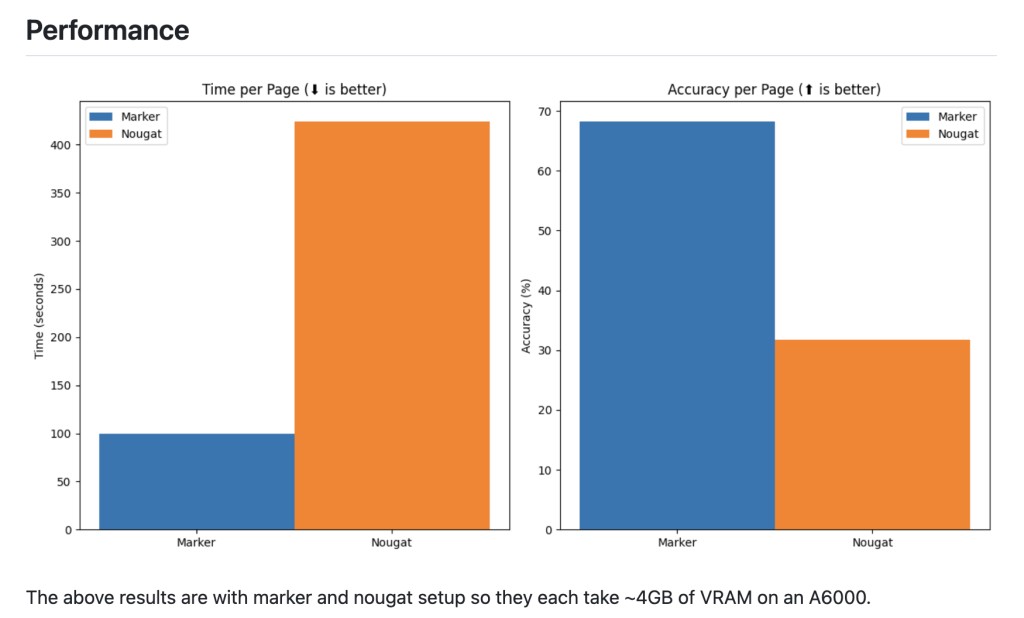The need to convert PDF documents into more manageable and editable formats like markdowns is increasingly vital, especially for those dealing with academic and scientific materials. These PDFs often contain complex elements such as multi-language text, tables, code blocks, and mathematical equations. The primary challenge in converting these documents lies in accurately maintaining the original layout, formatting, and content, which standard text converters often need help to handle.
There are already some solutions available aimed at extracting text from PDFs. Optical Character Recognition (OCR) tools are commonly used to interpret and digitize the text contained within these files. However, while these tools can handle straightforward text extraction, they frequently need to improve when preserving the intricate layouts of academic and scientific documents. Issues such as misaligned tables, misplaced text fragments, and loss of critical formatting are commonplace, leading to outputs that require significant manual correction to be helpful.
In response to these challenges, a new tool called “Marker†has been developed that significantly enhances the accuracy and utility of converting PDFs into markdown. Marker is designed to tackle the complexities of high-density information documents like books and research papers. It supports extensive document types and is optimized for content in any language. Crucially, Marker not only extracts text but also carefully maintains the structure and formatting of the original PDF, including accurately converting tables, code blocks, and most mathematical equations into LaTeX format. Additionally, Marker can extract images from the documents and integrate them appropriately into the resultant markdown files.
It has been finely tuned to efficiently handle large volumes of data, utilizing GPU, CPU, or MPS platforms to optimize processing speed and accuracy. This capability ensures that it operates within a reasonable usage of computational resources, typically requiring around 4GB of VRAM, which is on par with other high-performance document conversion tools. Benchmarks comparing Marker to existing solutions highlight its superior ability to maintain the integrity and layout of complex document formats while ensuring the converted text remains true to the original content.
Further setting Marker apart is its tailored approach to handling different types of PDFs. It is particularly effective with digital PDFs, where the need for OCR is minimized, thus allowing for faster and more accurate conversions. The developers have acknowledged some limitations, such as the occasional imperfect conversion of equations to LaTeX and minor issues with table formatting.Â
In conclusion, Marker represents a significant step forward in document conversion technology. It addresses the critical challenges faced by users who need to manage complex documents by providing a solution that not only converts text but also respects and reproduces the original formatting and structure. With its robust performance metrics and adaptability to various document types and languages, Marker is poised to become an essential resource for academics, researchers, and anyone involved in extensive document handling. As digital content grows both in volume and complexity, having reliable tools to facilitate easy and accurate conversion will be paramount.
The post Marker: A New Python-based Library that Converts PDF to Markdown Quickly and Accurately appeared first on MarkTechPost.
Source: Read MoreÂ



